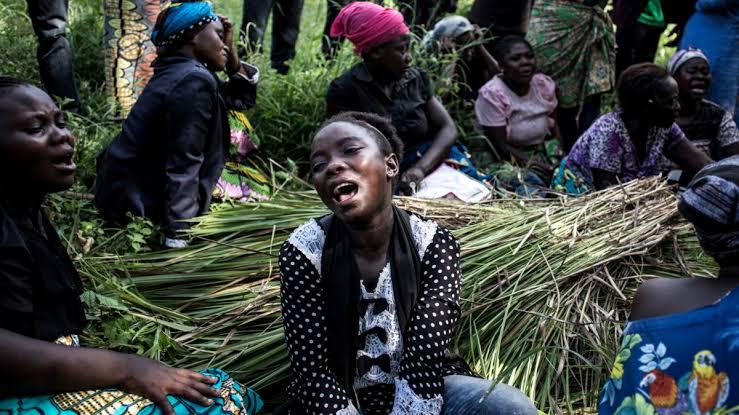Khartoum suffers from a fierce war between the Rapid Support Forces and the Sudanese army,…

DR Congo: 45 dead, including 23 children, in an attack on a displaced camp in Ituri
During the night between Sunday, June 11, and Monday, June 12, at least 45 civilians were killed in an attack on a displaced camp of the Hema ethnic group in Mahagi, in the province of Ituri, northeastern Democratic Republic of Congo. The perpetrators of this massacre are believed to be rebels from the Codeco militia (Cooperative for the Development of Congo), which claims to protect the Lendu tribe from their rival, the Hema tribe, and is in turn defended by another militia called the “Zaire.”
UNICEF has highlighted that 23 children were killed in the massacre, accounting for half of the victims. “Targeting already vulnerable civilians is beyond despicable. The trauma these children are going through is unimaginable. It is unacceptable that these families, who have already fled their homes once, are once again the direct target of violence.”
According to Jean-Richard Deddha Kondo, the head of the Bahema Badjere area, the killings were carried out with machetes and firearms, and the victims were all displaced from other sites, persecuted even in the camp where they had theoretically found refuge. There are also dozens of wounded, but the horror is further compounded by the fire that was set to burn their huts. According to the local administrator, some soldiers from the FARDC (Armed Forces of the Democratic Republic of Congo), who were about 4 km from the scene of the tragedy, intervened to defend the inhabitants of Mahagi.
It is estimated that Codeco has thousands of militiamen, and recently their attacks have increased in number and brutality. They are continuous, but one of the most recent and horrific incidents occurred two months ago, with at least 60 deaths in mid-April.
MONUSCO (the UN peacekeeping operation in the DRC) and Congolese authorities have stated that they have strengthened the security system in the area by increasing patrols “in order to protect civilian populations and displaced sites in the province of Ituri.” The Special Representative of the Secretary-General of the United Nations in the DRC, Bintou Keita, added that “this attack constitutes a serious violation of international humanitarian law.” The UN High Commissioner for Refugees, Filippo Grandi, expressed his dismay, reminding that “every day in the eastern part of the DRC, civilians are displaced, raped, and murdered. No further comments are needed.”
The recommendations remain the same: MONUSCO and other international organizations present on the ground are urging Congolese authorities to conduct an investigation and bring the perpetrators of these unspeakable acts of violence to justice. However, despite the announcements from the Kinshasa government, despite the United Nations mission, despite the year-long state of siege, despite the presence of soldiers from the East African Community’s Regional Force and, of course, the Congolese regular army, security in the eastern provinces of the country, particularly in Ituri, remains an elusive dream. It is a rather evident political and strategic failure for the Head of State, Félix Tshisekedi, which his opponents in the upcoming presidential elections in December are trying to take advantage of. Moïse Katumbi, for example, declared that “governing the DRC means mobilizing efforts to restore the authority of the state instead of seeking scapegoats, inventing false conspiracies, and living in self-complacency.”
Another example is National Deputy Gratien Iracan, who issued a press release accusing the government authorities of “inertia and guilty silence” and reaffirming that “the regime of Félix Tshisekedi has failed to secure the province of Ituri.”
Regarding the humanitarian situation, according to the most recent report from OCHA (the United Nations Office for the Coordination of Humanitarian Affairs) dated June 2, 2023, the humanitarian situation in the province of Ituri is particularly alarming. The influx of new displaced persons reached tens of thousands in the past month of May, but at the same time, measles cases are increasing, particularly in the Mambasa territory. “Between May 15 and 21, the Provincial Health Division reported over 270 suspected measles cases, including 10 deaths, a significantly higher number compared to the 249 cases recorded the previous week.”




